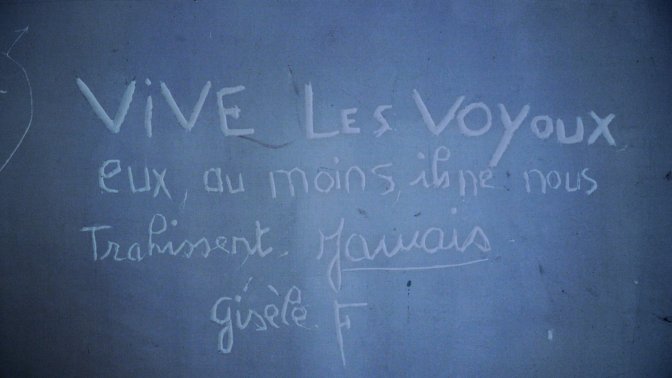Take up again : Wayward, wayward, misunderstood, or just plain unloved. Like so many other women, Edith, Michèle, Éveline and Fabienne were admitted to reform school as teenagers. Today, driven by an incredible life force, each one tells her story and reveals the overwhelming fate reserved for these “mean girls” until the end of the 1970s in France.
Criticism: The Congregation of Our Lady of Charity of the Good Shepherd was founded in Angers in 1829 and approved in 1835 by Pope Gregory XVI. One hundred years later, almost three hundred and fifty houses born from this religious institution will be surveyed all over the world, whose job it is to welcome all those who are described as lost girls. In France, the ordinance of 2 February 1945 distinguishes between supervised education and prison administration. What appears to be an advance actually marks the segregation between the boys who are sent to public boarding schools and the girls who are placed as a priority in religious institutes to ensure their good behavior. Between the end of World War II and the early 1970s, many of those who refused to fall into line were confined by an investigating judge or their family members to the Bon Pasteur or any other religious congregation of the same type.
In 2002, Peter Mullan with The Magdalene sisters denounced the abuse inflicted on women deemed impure in Catholic Ireland in the 1960s and the humiliation, especially as the victims, suffocated by shame, have always kept the secret of this collectively taboo story. For this Émérance Dubas, intrigued by the evolution of women’s place in society, gives the floor to four of them, underlining their phenomenal strength of character.
- CopyrightWild Eye Films
Of Edith we will only hear the crystalline voice which, with painful precision, guides us during the spectral visit of the abandoned site of the Good Shepherd of Bourges. Michèle, whose only fault was that of being the daughter of a mother unable to raise her, was condemned to years of isolation and deprivation of love. She returns to the scene with her granddaughters stunned to discover a past she didn’t suspect and admiring her grandmother’s resilience. If Éveline, placed there following a rape suffered as a teenager, wants to free herself from the traumas of the past, she struggles to hold back the resentment when she realizes how cruelly everything has been done to cut her off from her family (intercepted letters, parcels never delivered). As for Fabienne, if she boasts that this unfortunate experience has forged her character, she acknowledges that the consequences of this life of misery have been dramatic and that at eighteen she expected nothing but death. .

- CopyrightWild Eye Films
By suggesting rather than hammering, the director installs the modesty necessary to give free rein to feelings. Refusing to get lost in a poor quality darkness, he manages, on a musical background, to make the mitard a zone of solidarity, where the graffiti on the first pages are many messages of hope or love for the next ones, where the drawings remain l only possible means of communication. A bond of sisterhood that the nuns have tried to prevent without success.
If this film is a severe political pamphlet on the destiny reserved for women until the end of the 70s, it avoids any note of revenge, preferring that of emotion and authenticity.


